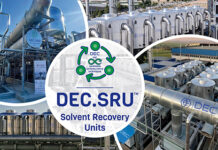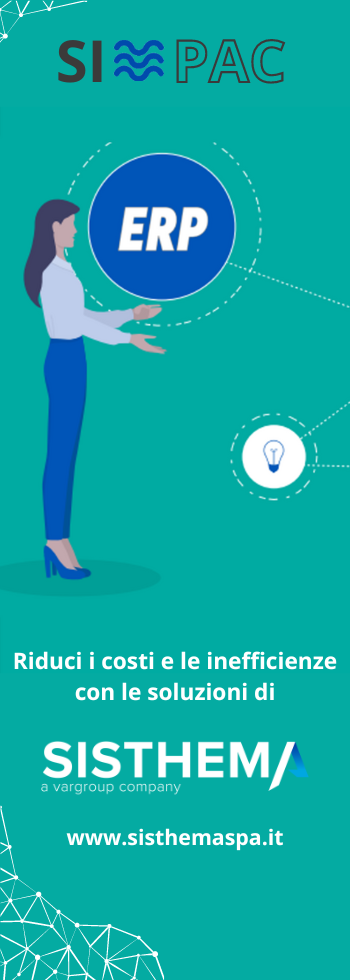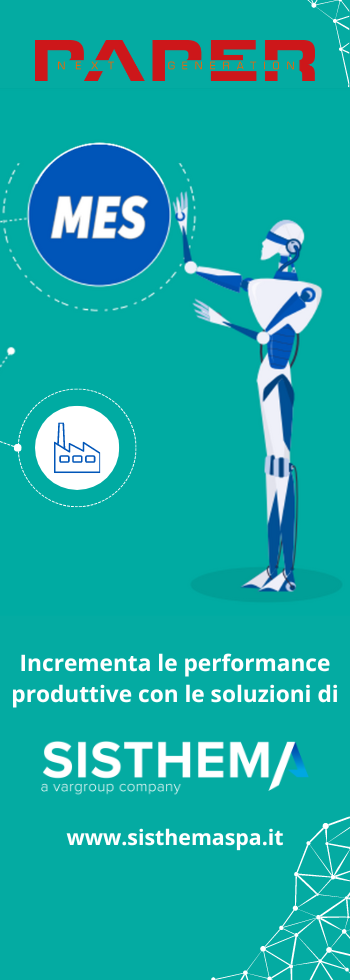Ipsos, a leading company in Italian market research services, during the conference “The third moment of truth: is sustainable packaging the new tsunami?”, presented a research dedicated to plastic, carried out thanks to the analysis of numerous studies and market surveys conducted by the Institute on issues such as CSR and environmental sustainability
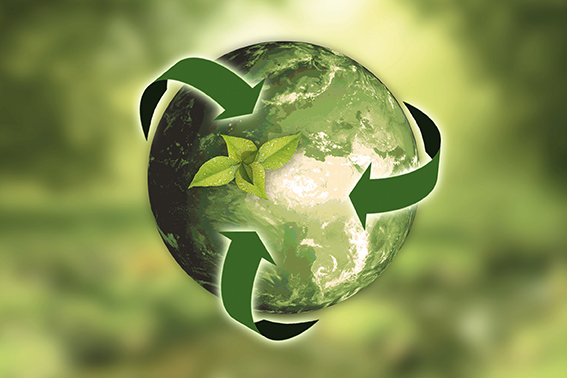 The environmental issue and, in particular, the reduction of the use of plastic, is the undisputed protagonist of the public debate in recent months. Ipsos data measure the degree of people’s growing awareness of the planet’s state of health and outline consumers’ expectations of companies in terms of environmental impact. It is clear how plastic-free represents a unique opportunity to seize and a strategic choice for companies.
The environmental issue and, in particular, the reduction of the use of plastic, is the undisputed protagonist of the public debate in recent months. Ipsos data measure the degree of people’s growing awareness of the planet’s state of health and outline consumers’ expectations of companies in terms of environmental impact. It is clear how plastic-free represents a unique opportunity to seize and a strategic choice for companies.
The new environmental awareness of the citizen
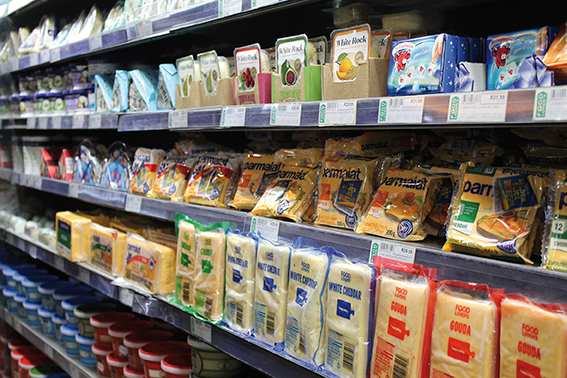 There is no doubt that a strong collective awareness of environmental issues has grown in recent times, so much so that as many as 80% of Italians declare that they are afraid of being on the threshold of a real environmental disaster. A consequence of everyday behaviors and gestures for which no one feels absolved: 74% of Italian population thinks they have contributed personally to the islands of waste in the oceans.
There is no doubt that a strong collective awareness of environmental issues has grown in recent times, so much so that as many as 80% of Italians declare that they are afraid of being on the threshold of a real environmental disaster. A consequence of everyday behaviors and gestures for which no one feels absolved: 74% of Italian population thinks they have contributed personally to the islands of waste in the oceans.
“Today, the ecological emergency is no longer perceived as a priority only for an elite, but it becomes a problem experienced by most of the people who take charge of it through, first of all, qualified knowledge”, comments Andrea Alemanno, Ipsos Senior Client Officer, “just think that in the last four years the attention and the will to learn specific notions in environmental matters has grown by 65%”.
The belief that every single individual has a strong impact on the environment is growing. More and more often people adopt a careful and respectful lifestyle, they are sensitive to the environmental impact of their consumption choices, therefore more prone to personal sacrifice (saving paper, recycling of commonly used plastic objects) and willing to face also economic sacrifice.
20% of Italians declare that they habitually adopt sustainable behavior, while another 50% consider themselves open to a more careful conduct. Only 13% declare themselves skeptical or even indifferent (17%).
Plastic alarm
The alarm of public opinion on the state of health of the planet and the consequent growth of environmental responsibility are undoubtedly to be attributed to the plastic question and to terrible images of the waste islands spread by the media.
50% of Italians think it is a very serious problem, while 46% consider it “only” a problem, which exists but can be solved (for 26%) or that exists because now the plastic is not properly recycled (for 20% of Italians). Finally, there is only 1% who consider the debate on plastic to be the result of unnecessary alarms and 2% doesn’t perceive this as a concern. It is obvious that plastic is a useful element in the daily life of all of us, but the use, sometimes excessive or wrong, of this material is equally evident and companies are called to intervene to offer consumers more sustainable solutions
CSR: Corporate Social Responsibility rewards companies
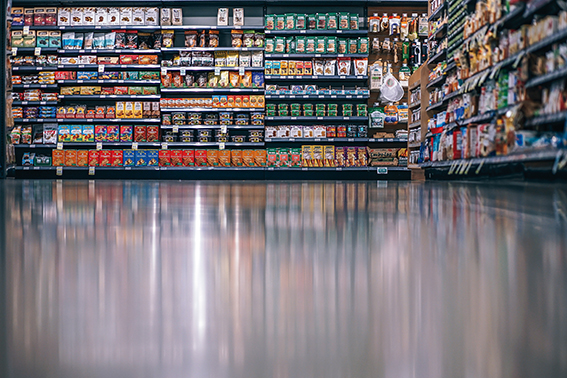 The changed sensitivity of public opinion in environmental matters means that companies have as their interlocutor a consumer more attentive and sensitive to sustainability issues. Companies are now also evaluated on the basis of their behavior and positions on issues related to environmental protection.
The changed sensitivity of public opinion in environmental matters means that companies have as their interlocutor a consumer more attentive and sensitive to sustainability issues. Companies are now also evaluated on the basis of their behavior and positions on issues related to environmental protection.
The central role attributed to companies emerges clearly in the analysis presented by Ipsos. To the question “Who has the responsibility to find a solution to reduce the amount of material used for packaging of products”, as many as 39% think it is the duty of the companies that produce and sell consumer products.
More and more consumers are looking for an element of identification in the brands, a unique and indissoluble link between what one is and what one consumes, and this link finds one of his greatest expressions in the commitment to the environment. The declared desire by 52% of Italians to find brands that allow them to make a difference in the world expresses the new way of experiencing the relationship with the brand.
In this perspective, the role of corporate social responsibility policies is crucial to increase the perceived value of the brand among its target audience. According to Ipsos, among the areas considered really very important, the reduction of emissions and the environmental impact (77% of Italians) stand out in the first place, followed by attention to working conditions of employees (50%), by the improvement quality of service/product for the benefit of consumers (37%) and investments in Research & Development and innovation (31%).
“Today the sustainable company is repaid by concrete support by consumers. This is the strong and clear message that emerges from our analysis”, explains Nicola Neri, CEO of Ipsos Italia, “68% of Italian citizens declare that they are willing to pay more for a product or service from a company that implements serious and rigorous environmental policies; 83% would recommend it to those looking for work, a further 83% would be ready to entrust it with their savings or to invest money in it and even 90% would choose it as a supply of products and services.
Company’s reputation therefore also passes through circular economy, indeed it becomes its direct consequence. Companies that are ahead in the implementation of sustainable processes have the highest reputation. In fact, Ipsos analysis highlights the growth in turnover, export and employment of companies that in 2014-2016 decided to invest in the so-called “Green” factor. These more far-sighted companies represent 52.6% of the actors present in the sector and record a + 5% turnover, a + 16% of exports and a + 7% in terms of employment compared to the average of industrial companies that did not bet on sustainability.
However, prevails the conviction that the companies called upon to take on the problem are not generally doing enough: 77% of Italian citizens think so. There is therefore still a long way to go and the possibilities and margins for improvement are really great.
Sustainable packaging: plastic free direction, new opportunities are arising
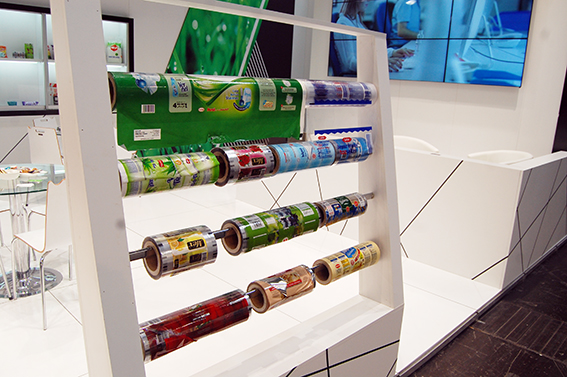 Packaging is now considered the first factor of sustainability on which a brand is evaluated. “According to the Italians, in order to be considered environmentally friendly, a company must use eco-sustainable packaging materials (41%) minimize production waste (39%), reduce packaging products (34%), being very efficient by reducing material waste (33%)”, comments Diego Persali, director of Ipsos Understanding Marketing Division.
Packaging is now considered the first factor of sustainability on which a brand is evaluated. “According to the Italians, in order to be considered environmentally friendly, a company must use eco-sustainable packaging materials (41%) minimize production waste (39%), reduce packaging products (34%), being very efficient by reducing material waste (33%)”, comments Diego Persali, director of Ipsos Understanding Marketing Division.
The new “citizen-consumer” is ready to act also in person when the packaging is not eco-sustainable. 53% of Italians declare to buy products made from recycled materials, 48% to reuse disposable items, 41% to stop buying goods with not-recyclable packaging and 24% to stop going to stores that use a lot of packaging not recyclable. Consumers are increasingly looking for a kind of coherence between form and content and the idea is gaining ground, mainly on social media that amplify these trends, that packaging, especially in premium-organic products, must be bearer of the same sustainability values as the product. Therefore, the communication on the packaging for its correct disposal becomes very important.
Today plastic is living a reputational crisis, so much that only 12% consider it a sustainable material. This changes clearly when plastic, thanks to new technologies, is managed and transformed into bioplastic or recyclable plastic. When asked how much these materials are considered sustainable, 47% and 40% of Italians respectively expressed favorably.
However, avoiding the use of plastic in the collective imagination is still very difficult, especially if one thinks of everyday life. The survey showed that the products made with plastics that Italians would find it more difficult to do without are: bottles of water (33%), transparent films for food (27%); reusable food containers (16%), detergent containers (14%), clothing such as fleece and microfibres (13%); plastic bags (12%); disposable cutlery (12%), toys (11%).
The brands can then decide to accept the challenge of sustainability, reduce their environmental impact and look to the future, supporting the plastic-free trend or anyway to reduce the use of plastic or not to innovate, remaining inexorably behind. Therefore, sustainable packaging is no longer a choice but a company need to be supported with conviction, riding the wave to avoid being overwhelmed by the tsunami.
- In the last 4 years, + 65% growth in the acquisition of qualified knowledge about environmental issues by citizens.
- More than 1 in 3 Italians think it is the duty of companies to offer concrete answers for reducing the use of plastic in packaging of products.
- 77% of Italians believe that companies are not doing enough for sustainability.
- 77% of Italians consider the reduction of emissions and the environmental impact to be the most important area in which corporate social responsibility policies must be concentrated.
- Packaging is considered the first factor of sustainability on which a brand is evaluated (by 41% of Italians).
- 53% of Italians declare to buy products made with recycled materials.







